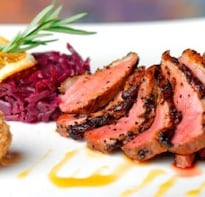Where does Peking Duck come from? It is a trick question: the dish named for China's capital has its origins in Nanjing, hundreds of kilometres to the south. The tidbit is one of the revelations in a museum opened earlier this month to mark the 150th anniversary of the Quanjude restaurant, now the seven-storey flagship of a chain with franchises as far away as Australia.
Advertisement
Advertisement
Advertisement
Advertisement
For the latest food news, health tips and recipes, like us on Facebook or follow us on Twitter and YouTube.
Advertisement
